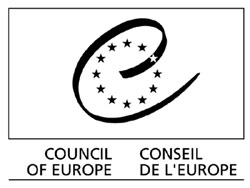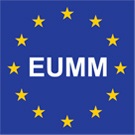| SECRETARIAT GENERAL DIRECTORATE GENERAL OF HUMAN RIGHTS AND LEGAL AFFAIRS DIRECTORATE OF COOPERATION TECHNICAL COOPERATION DEPARTMENT LEGAL AND HUMAN RIGHTS CAPACITY BUILDING DIVISION |
 |
For the last three weeks, a team of independent experts engaged by Council of Europe has been training the EUMM monitors on a range of human rights issues. With this extra training, the monitors will be better equipped to identify potential human rights violations, as well as integrating human rights awareness into the missions’ activities. The training provided the monitors with specific tools and reference points for carrying out their work in the field.
Almost 200 monitors attended the training courses held over a three-week period. It started in Zugdidi at the end of November for the Field Offices in Zugdidi and Poti/Khashuri, continued in Gori, for Field Office Gori and the Rapid Response Capability, and concluded on 12 December in Mtskheta for Field Office Tbilisi and the Mission Headquarters.
The Council of Europe brought in five leading human rights experts to conduct the training sessions: Conor Foley, Ralph Crawshaw, Paul Garlick, Ivana Roagna and Patrick Twomey. Their expertise helped the monitors grasp the main concepts of human rights monitoring and reporting, and covered the main aspects of a number of basic human rights. In particular the training focused on the right to life, prohibition of any kind of torture and inhuman treatment, freedom of movement, non discrimination, right to liberty and security of the person as well as right to property. The team from the Council of Europe Secretariat consisted of David Cupina, Elira Kokona and Martin Zeman.
Each session took as its starting point a very practical approach, focusing on actual monitoring work and skills such as interviewing techniques, working with interpreters and effective reporting. The training also provided an opportunity to highlight the importance of mainstreaming gender issues into monitoring.
Almost 200 monitors attended the training courses held over a three-week period. It started in Zugdidi at the end of November for the Field Offices in Zugdidi and Poti/Khashuri, continued in Gori, for Field Office Gori and the Rapid Response Capability, and concluded on 12 December in Mtskheta for Field Office Tbilisi and the Mission Headquarters.
The Council of Europe brought in five leading human rights experts to conduct the training sessions: Conor Foley, Ralph Crawshaw, Paul Garlick, Ivana Roagna and Patrick Twomey. Their expertise helped the monitors grasp the main concepts of human rights monitoring and reporting, and covered the main aspects of a number of basic human rights. In particular the training focused on the right to life, prohibition of any kind of torture and inhuman treatment, freedom of movement, non discrimination, right to liberty and security of the person as well as right to property. The team from the Council of Europe Secretariat consisted of David Cupina, Elira Kokona and Martin Zeman.
Each session took as its starting point a very practical approach, focusing on actual monitoring work and skills such as interviewing techniques, working with interpreters and effective reporting. The training also provided an opportunity to highlight the importance of mainstreaming gender issues into monitoring.
 |
 |
 |
 |
